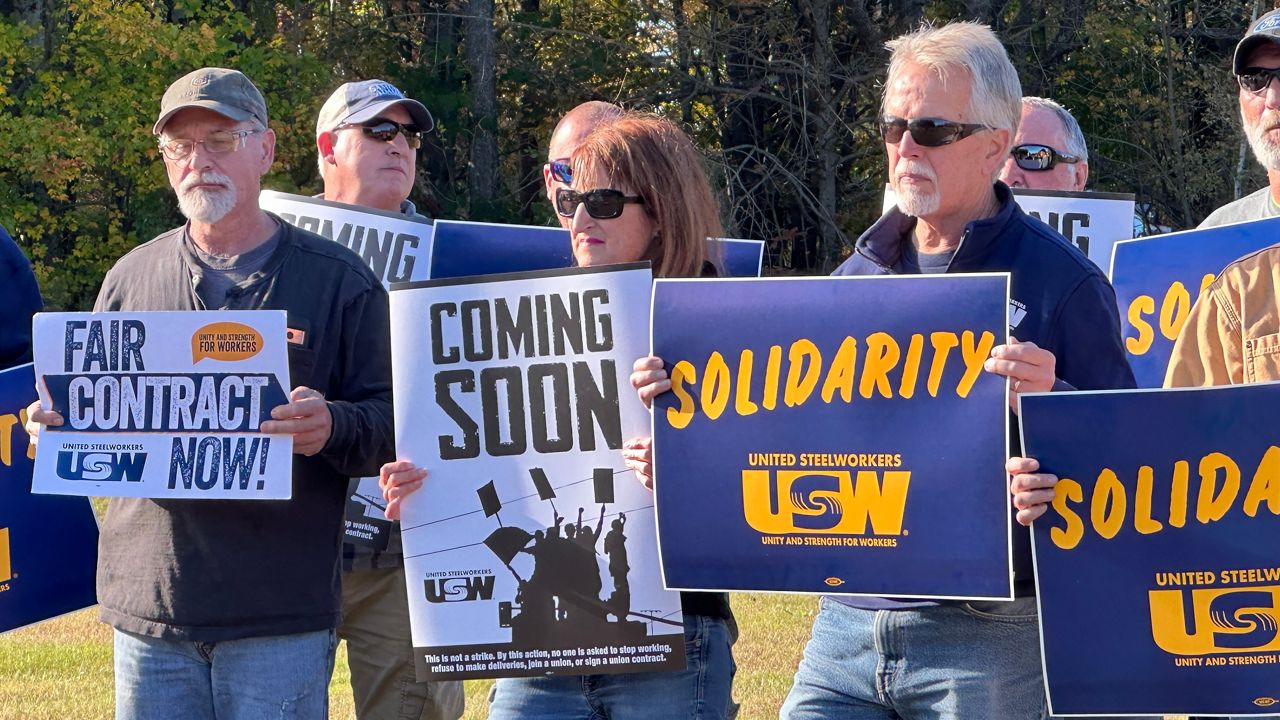Sappi paper mill workers rallied in Skowhegan Tuesday to draw attention to concerns about several proposed changes to their union contracts.
Justin Shaw, a pipe fitter and president of the United Steelworkers Local 4-9, said the union is in negotiations for a new three-year contract for about 480 workers.
“Right now, it’s a work life balance that we’re really struggling with,” he said.
The sticking points are the company’s proposal to have workers pick up additional health insurance costs, mandatory 24-hour shifts and a proposed change to their earned time off.
Fewer and fewer workers are juggling more duties, setting up the potential for “fatal mistakes” that could lead to workplace injuries or accidents on local roads, union leaders said.
The union voted Sept. 20 to authorize a strike, but they hope it doesn’t come to that, Shaw said.
In response, the company issued a statement saying they have offered the union competitive wages.
“We are disappointed that the employees represented by the United Steelworkers at Somerset have rejected our offer and provided their leadership with strike authorization,” the statement reads. “We have presented a highly competitive offer, featuring industry-leading wage increases on top of wages that are already among the best in both the industry and the region.”
The company also said it disagrees with the way the union is describing overtime and time off benefits.
“We take exception to the union’s characterization of the issues regarding overtime and vacation benefits,” the statement said. “We remain hopeful that we will reach an agreement.”
The Skowhegan plant is one of the properties run by Sappi North America, which is based in Boston. The company employs about 2,100 in the U.S. and Canada, according to its website.
The mills produce packaging, specialty papers, graphic paper, food packaging and paper used in magazines, catalogs and books.
As dozens of workers stood outside the union hall in Skowhegan on Tuesday, a steady stream of logging trucks passed by on the way to the mill just three miles up the road.
Shaw said a large number of retirements in recent years have left the mill short-staffed. In one instance, a worker who is nearly 70 years old worked 151 out of 170-night shifts.
And when someone calls out for a family emergency, it often results in what they call a “forced 24” — a requirement for someone else to fill in on a 24-hour shift.
“We have forced 24s over in the boiler house a lot of times,” he said. “That all results from a lack of training, lack of qualifications.”
Shaw said applications for positions at the mill are down, noting that open jobs are drawing only 30 applicants to fill 20 jobs. And although he knows there’s a nationwide hiring crunch, he said the public also knows that mill jobs are difficult, requiring overtime and shifts on nights, weekends and holidays.
“It’s a 24/7 facility,” he said. “Those machines don’t stop. But they don’t run themselves either.”
Michael Higgins, a staff representative at the steelworkers union, said the local mill workers appreciate the investments Sappi has made in the plant in recent years and that the company has long-term plans to stay in the area.
Negotiations are set to continue Oct. 17.
“This is a big deal,” he said. “This is their opportunity. It only comes once every three years and since the last time we negotiated, we’ve had some issues with the company and we just want to resolve them.”



